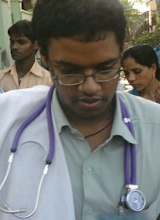What may seem like a harmless cold during the first six months of life may more than double a child's chances of developing antibodies that often lead to type 1 diabetes, new German research suggests.
Infections have long been suspected as potential triggers of type 1 diabetes. Type 1 diabetes (also called childhood diabetes or immune mediated diabetes mellitus) is an autoimmune condition that causes the body's immune system to mistakenly attack and destroy insulin-producing beta cells in the pancreas, according to background information in the study. Insulin is a hormone needed to metabolize the carbohydrates in foods so that they can be used as fuel for the body and brain.
Substances called islet autoantibodies appear in the blood before the development of type 1 diabetes, sometimes years before diabetes is evident. These autoantibodies help researchers predict whether or not someone will develop type 1 diabetes.
In the current study, the researchers followed 148 children who were under 3 months old when they started the study. All of the babies had a first-degree relative with type 1 diabetes.
Children who had a respiratory infection during the first six months of life had more than twice the odds of developing islet autoantibodies compared to those who didn't have an infection. The researchers also found that having more respiratory infections during the first six months of life was tied to an increased likelihood of a youngster developing islet autoantibodies
Beyerlein said these findings suggest -- but don't prove -- that it's not just the cumulative number of infections, but also that the timing of infections is quite important as well.
"Parents of high-risk children might possibly decrease their children's type 1 diabetes risk by reducing exposure to respiratory infections in very early life," Beyerlein said.
"In general, the early immune system is still in a phase of development, and may therefore be particularly susceptible for challenges by infectious agents. However, we cannot explain yet why specifically respiratory infections might be relevant in this phase," said study author Andreas Beyerlein, head of the working group on epidemiology at the Institute of Diabetes Research in Munich.
Results of the study were published online July 1 in JAMA Pediatrics.
source- healthday

0 comments:
Post a Comment